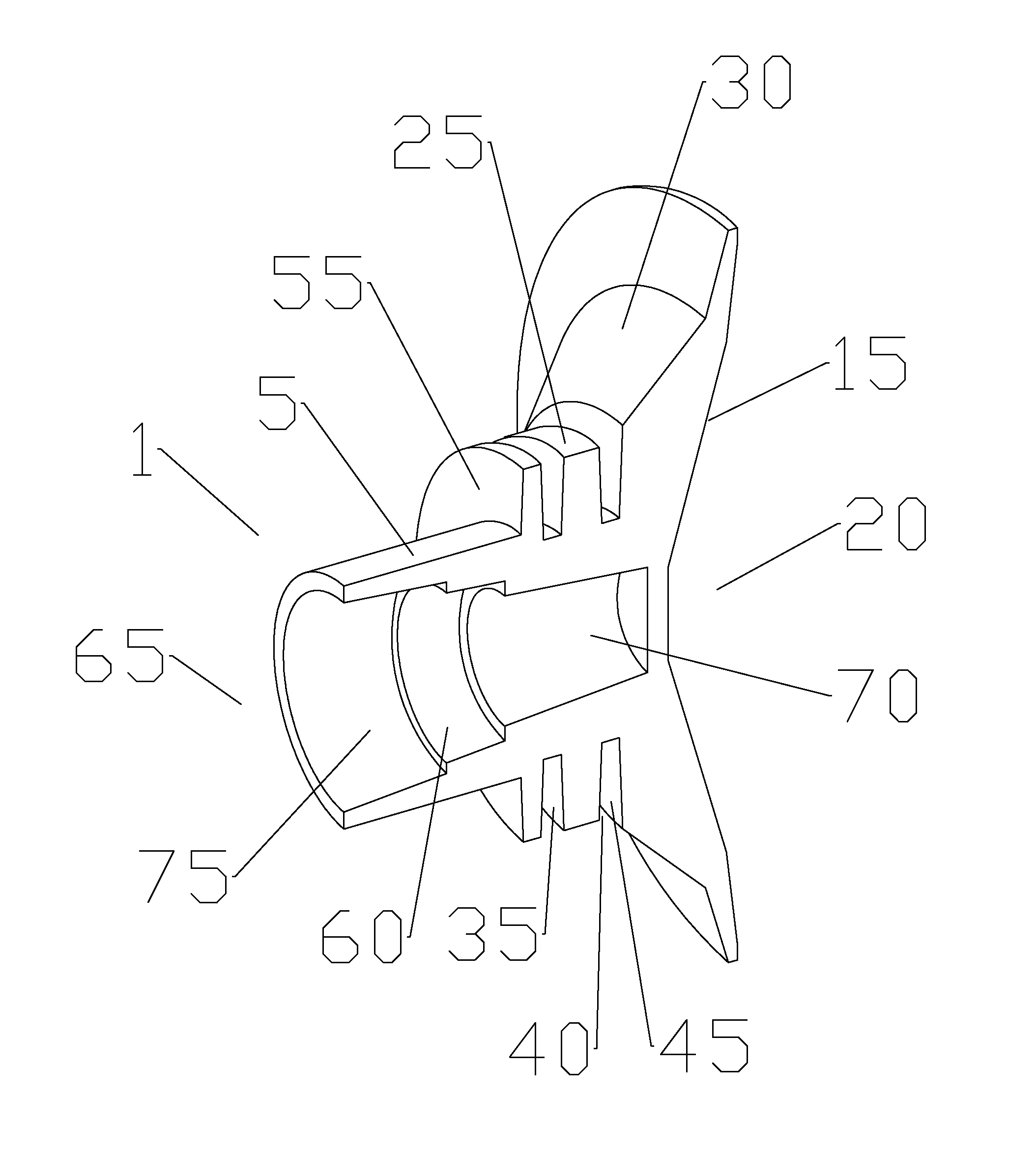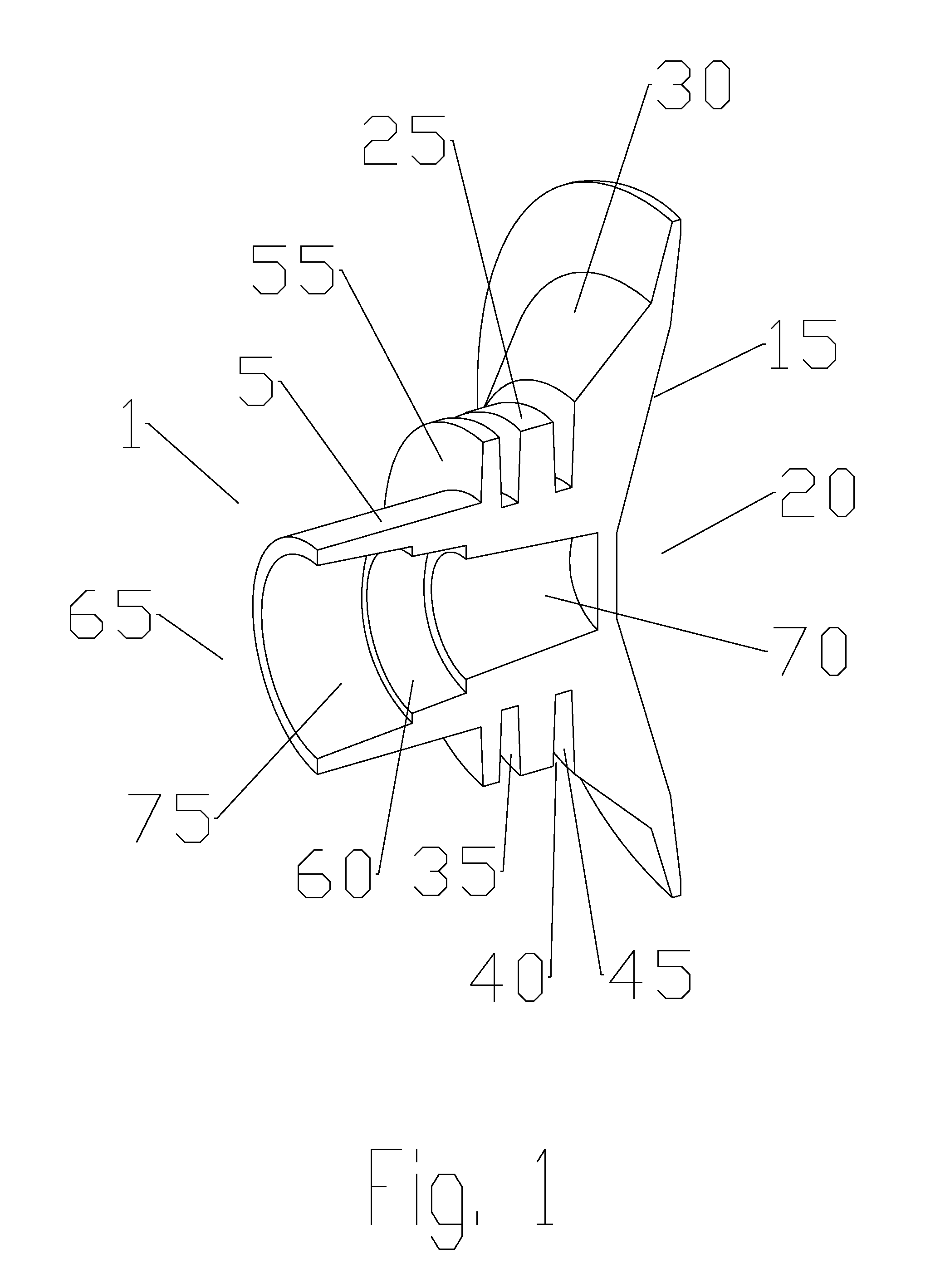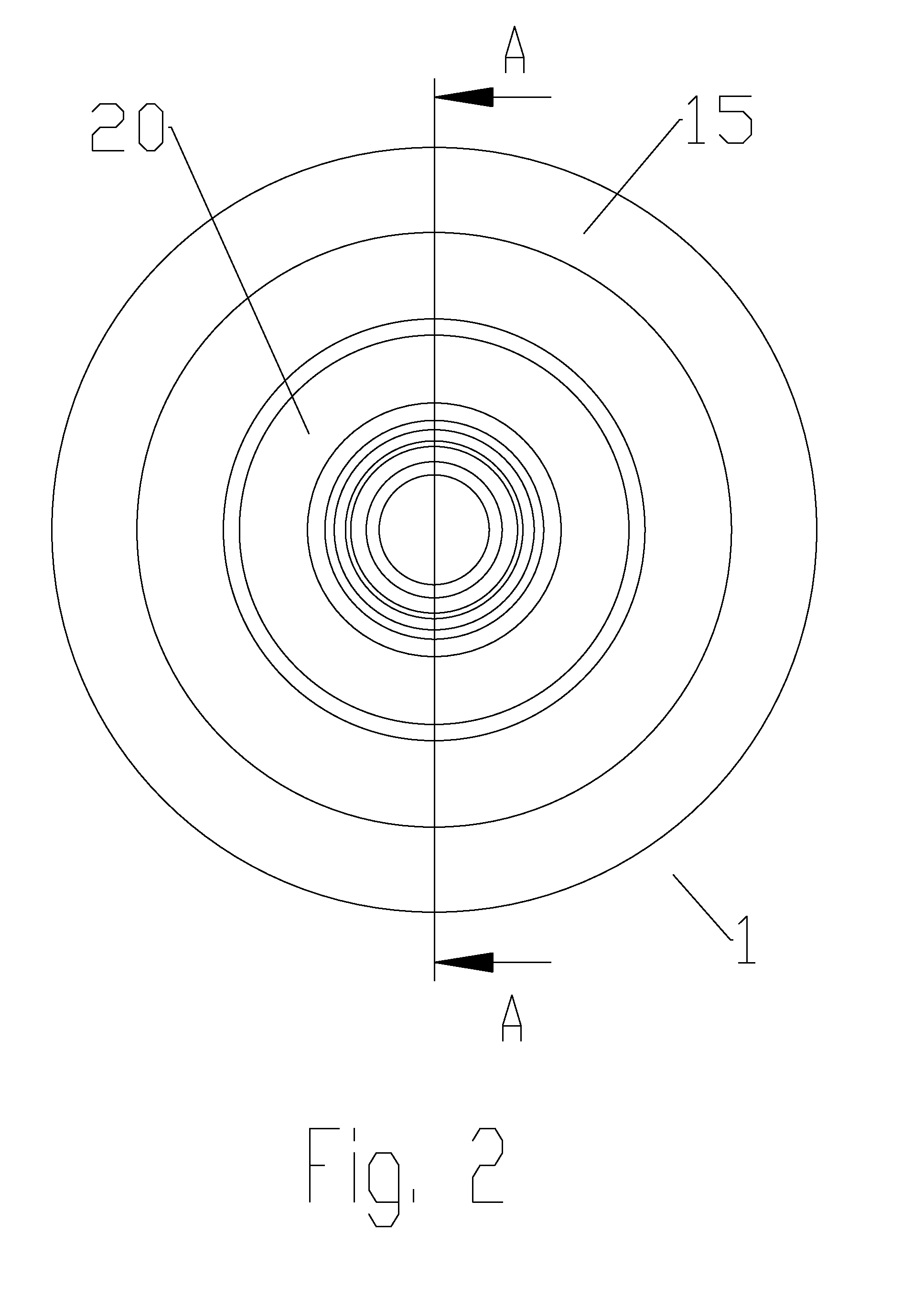Injection moldable cone radiator sub-reflector assembly
a sub-reflector and cone radiator technology, applied in the direction of antennas, electrical equipment, etc., can solve the problems of increasing the overall manufacturing cost, rf signal path blockage by the sub-reflector along the boresight of the reflector antenna,
- Summary
- Abstract
- Description
- Claims
- Application Information
AI Technical Summary
Benefits of technology
Problems solved by technology
Method used
Image
Examples
Embodiment Construction
[0020]The inventors have recognized that improvements in cone radiator sub-reflector assembly designs utilizing unitary dielectric blocks typically require manufacture of the dielectric block by machining, due to the increased size and complexity of these designs.
[0021]When injection molding and / or casting methods of manufacture are attempted on the prior dielectric block type cone radiator sub-reflector assembly designs, the increased size may create issues with the setting of the dielectric polymer material, such as voids, cracks, surface sink, dimensional bends and / or sagging. Further, where the designs utilize features that inhibit mold separation, such as overhanging and / or close proximity opposing edges, the required mold, if possible at all, may become too complex to be cost effective.
[0022]As shown in FIGS. 1-6, a cone radiator sub-reflector assembly 1 may be configured to couple with the end of a feed boom waveguide at a waveguide transition portion 5 of a unitary dielectri...
PUM
| Property | Measurement | Unit |
|---|---|---|
| Thickness | aaaaa | aaaaa |
| Dielectric polarization enthalpy | aaaaa | aaaaa |
| Diameter | aaaaa | aaaaa |
Abstract
Description
Claims
Application Information
 Login to View More
Login to View More - R&D
- Intellectual Property
- Life Sciences
- Materials
- Tech Scout
- Unparalleled Data Quality
- Higher Quality Content
- 60% Fewer Hallucinations
Browse by: Latest US Patents, China's latest patents, Technical Efficacy Thesaurus, Application Domain, Technology Topic, Popular Technical Reports.
© 2025 PatSnap. All rights reserved.Legal|Privacy policy|Modern Slavery Act Transparency Statement|Sitemap|About US| Contact US: help@patsnap.com



